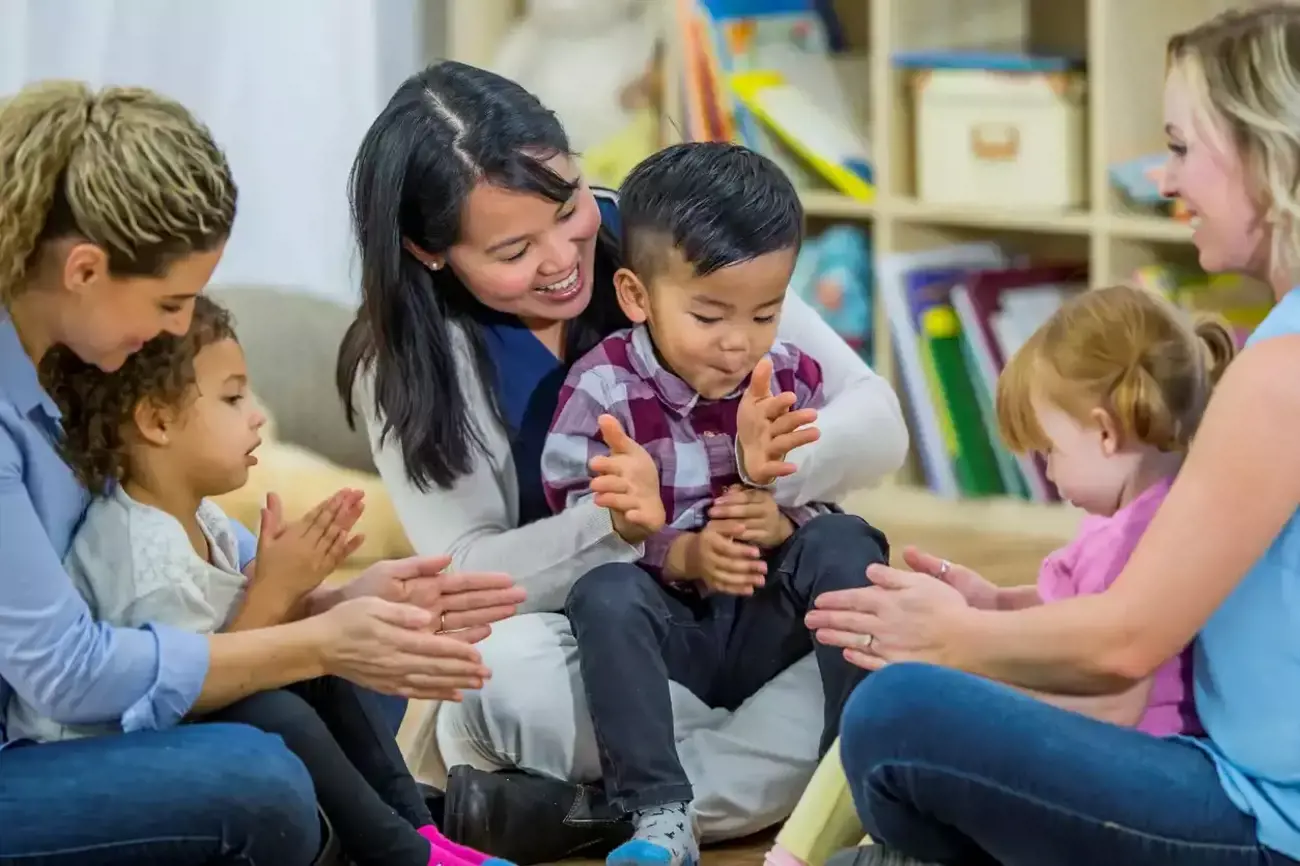The last few years cooped up at home have been tough for us all but as normality resumes and we enrol our kids in new activities, we suggest putting the library on top of your list. Read on to find out why…
The thought of taking a small and unpredictable human into the confines of a library may feel daunting. But modern libraries are in fact the ultimate haven for new parents and are well set up to not just entertain your baby but to teach them invaluable life skills. And be assured, if your little one becomes unsettled or raucous, you’ll be well supported.
Kate Sachdev, Children's Services Library Officer with the City of Boroondara attests to the value of visiting the library and how it can aid in early literacy. To celebrate Library and Information Week, we’ve enlisted Kate’s expert advice and detailed five ways that the library can benefit you and your child.
1. Early literacy skills
Library music programs like ‘Sing Baby Sing’ are instrumental to educate parents about the importance of early literacy skills. By singing together and sharing the sounds and rhythms of music you’re exposing them to emergent literacy in a fun and engaging way.
2. Building your baby’s brain
The songs and activities included in each baby session are specifically designed to stimulate various facets of a child’s brain and thus, assist in overall development. For example:
Action songs that involve bouncing, rocking and swaying stimulate the part of the inner ear that impacts balance, which is a prerequisite for crawling, standing, walking and beyond. It can be as simple as singing Row, Row, Row Your Boat with your baby in your lap or arms while rocking back and forth.
-
Face and body touch rhymes encourage eye contact and stimulates babies’ innate interest in the human face and reading of emotions. This develops trust and provides lovely bonding opportunities. Try lying your baby on their back and singing Heads, Shoulders, Knees and Toes while doing the actions with your baby.
-
Lullabies are a time for hugging and bonding with your baby. They are a great tool to calm an anxious or distressed child and form an integral part of a sleep routine.
3. Longer term benefits
Reading comprehension is associated with stronger self-discipline, longer attention span, and better memory retention. All very useful skills as children head towards kindergarten, primary school and beyond.
4. Connection
Rhyme time or children’s library activities provide a wonderful opportunity for parents/carers to connect with each other and share the highs and lows of parenthood. The best bit is that it’s free and there’s no need to book.
5. Access to resources
A visit to the library will not only allow you to take home a fresh collection of bedtime stories (for free!) but you can also utilise the wonderful expertise of the library staff to work out which books are best suited to your child’s stage of development.
So, if you’ve not yet ventured to your local library, perhaps it’s time to stop by and give it a go. Whether it’s to pick up a new selection of books or to connect with other like-minded parents, the experience is sure to be worthwhile.

































